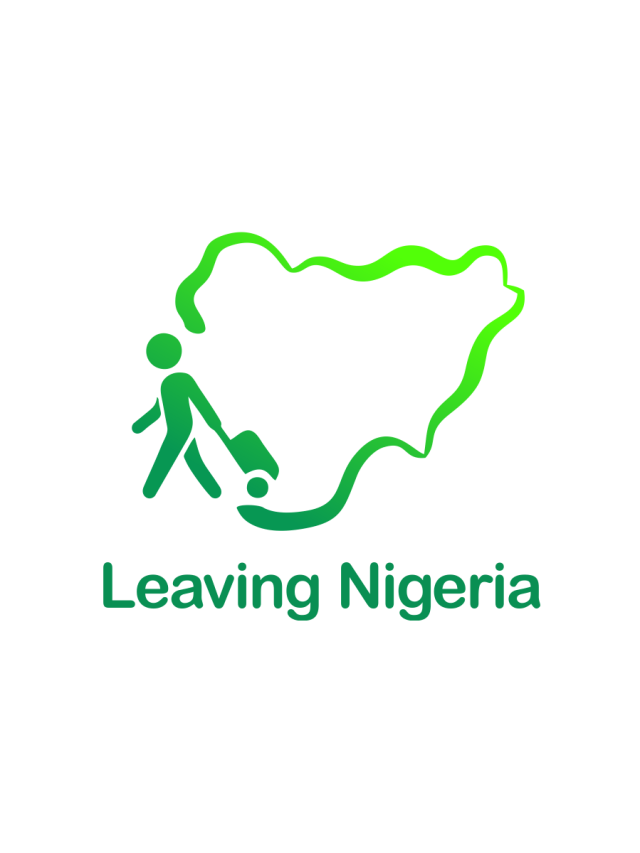
EXPLAINER: How to Avoid Travel Scams
In today’s Nigeria, where the dream to “japa” (relocate abroad) has become a common aspiration among youth and working professionals alike, knowing how to avoid travel scams has never been more urgent. With rising inflation, insecurity, unemployment, and a weakening naira, thousands of Nigerians are looking for greener pastures overseas. Unfortunately, this growing desperation is exactly what fake travel agents and visa racketeers exploit.
From Lagos to Abuja, stories abound of people selling family lands, emptying their savings, or even borrowing huge sums just to chase the promise of a better life abroad, only to be duped by fraudsters pretending to be legit travel consultants. Some never recover from the shock. Others are too ashamed to speak up.
But this doesn’t have to be your story.
With the right knowledge and caution, you can take charge of your travel plans, avoid falling victim, and even DIY much of the process. Let’s break it all down.
Why Desperation Makes You a Target
It’s no secret that many Nigerians are willing to give up everything—land, houses, life savings—just to “Japa.” Unfortunately, scammers are banking on this desperation. They know many individuals don’t take the time to verify travel agents because they’re in a hurry or feel it’s their only shot at a better life.
A recent case in Nigeria revealed how a fake agent scammed 166 people out of N700 million, promising visas that never materialised. These are not isolated cases; as published by the Punch Newspaper, many of these stories exist. The sad thing is that they will continue unless people learn how to avoid travel scams by taking ownership of their travel plans. Here are seven tips to check out to avoid travel scams.
READ MORE: 32 Ways to Legally Leave Nigeria (Non-Immigrant and Immigrant)
Top 7 Effective Strategies to Avoid Travel Scams
1. Start with Research: Don’t Skip the Basics
The first and most crucial step to avoiding travel scams is doing homework. Many fake travel agents have mastered the art of looking legit online, so don’t be fooled by a slick website or sweet-talking social media posts.
DIY travel vetting is your first line of defence. Here’s how to do it right:
- Look up reviews on reliable platforms like Google Reviews and Trustpilot or even within local forums and Facebook groups. Don’t ignore warning signs in comment sections or community feedback.
- Confirm the agency’s physical presence. A real business should have a verifiable office address, not just an Instagram page or WhatsApp number. You can use Google Maps or visit the location physically. Never contract a travel agency without physically visiting them at their office, not just any office, the one stated in their official documents.
- Check affiliations. Reputable agencies are registered with bodies like the National Association of Nigerian Travel Agencies (NANTA) or the Nigerian Civil Aviation Authority (NCAA). Visit the official websites of these associations and confirm if the agency is listed.
If all you get from an agent is a username, a phone number, and a promise of a “connection,” that’s a red flag you shouldn’t ignore.
2. Meet Your Agent in Person
One thing most fraudulent travel agents hate is meeting face-to-face. Phone calls are too easy to fake, and scammers thrive in anonymity. A trustworthy travel agent will welcome you to their office, show you around, and provide physical documentation upon request.
Insist on an in-person meeting. If the agent keeps rescheduling or only wants to meet you in a café, a parking lot, or worse, over another call, stop right there because there is a possibility that you are dealing with a scammer. Anyone unwilling to sit down with you professionally likely has something to hide.
Don’t ignore your instincts. If someone’s energy or behaviour feels “off,” listen to that voice in your head. It’s trying to protect you.
3. Learn the Red Flags of Travel Agent Fraud
There are specific warning signs you need to look out for if you want to stay ahead of scammers:
- Too-good-to-be-true packages: If someone offers you a one-way ticket, accommodation, job offer, and visa to Canada for just ₦350,000, it’s not a miracle; it’s a trap.
- Demand for full payment upfront: Real travel agencies typically ask for a deposit first, followed by balance payments at agreed milestones.
- Unethical behaviour: If you’re told to lie to immigration, or the agent offers to forge documents for an extra fee, leave immediately. This isn’t just shady; it’s illegal and could land you in serious trouble.
Being informed about these tactics is essential in 2025 as scammers evolve their playbook almost every quarter.
4. Verify All Licenses and Documentation
Don’t be afraid to ask for receipts, certifications, and licenses, then go further to verify them yourself.
A genuine travel agency should have no problem sharing:
- CAC registration
- NANTA/NCAA license numbers
- Partnership letters with embassies or airlines
Once you get the details, call or email the issuing bodies to ensure the license is still valid. Some scammers recycle old, expired, or completely fake documents.
If the agent gets angry, defensive, or suddenly ghosts you, that’s your answer. Walk away.
5. Say No to Pressure Tactics
Scammers are pros at manufacturing urgency. You’ll hear things like:
- “Visa slots are almost full!”
- “You must pay before 5 PM today or lose the chance!”
- “It’s now or never!”
But real opportunities don’t pressure you to act out of fear. Take your time. Ask questions, consult trusted people, and double-check everything. If you’re being rushed, it’s likely because they don’t want you to think too hard.
6. Consider Doing It Yourself (DIY)
One of the truths many don’t talk about is that you don’t always need an agent. Thanks to the digital tools available in 2025, you can DIY your travel plans safely and successfully.
Here’s how:
- Use official embassy websites to learn the step-by-step visa process for your destination.
- Join Reddit threads, Telegram groups, or Facebook travel communities for real-time insights from people who’ve gone through it.
- Attend free webinars or outreach programs by embassies and verified immigration consultants.
- Work with certified immigration consultants, not self-proclaimed “agents” with no credentials.
The beauty of doing it yourself is that it saves you money, gives you confidence, and, most importantly, keeps you in control.
7. Always Trust Your Instincts
Your intuition is your most underrated security system. If something feels shady, don’t force it. Desperation often clouds judgment, and that’s exactly what scammers count on. They play on your hopes, dreams, and fears to get you to act impulsively.
Take a step back. Talk to someone you trust. Sleep on it if you must. No deadline’s worth losing your money or your peace of mind.
Signs That a Travel Agency Is Fake
Spotting a fake travel agency early can save you from financial loss, legal trouble, and emotional stress. While some scammers are getting more sophisticated, there are still clear warning signs you can watch out for. Here are the most common red flags that a travel agency might be fake:
1. No Physical Office Address
Legitimate agencies operate from a known, verifiable location. If an agent can’t give you a proper office address or insists on meeting in public places like a café or hotel lobby, that’s a serious red flag. Even if they provide an address, verify it on Google Maps or visit it in person.
2. Only Active on Social Media
Many scam travel agents operate solely via Instagram, WhatsApp, or Facebook, with no official website, email domain, or traceable business information. While having a social media presence is normal, a lack of other professional channels is a warning sign.
3. Unbelievably Cheap Packages
If it sounds too good to be true, it probably is. Scammers lure people in with ultra-low travel package prices, promising visa approvals, tickets, and accommodation at below-market rates. Always compare their offer with other agencies to gauge authenticity.
4. Demands for Full Payment Upfront
Real agencies often allow instalment payments or only request a deposit upfront. You must be cautious if an agent pressures you to pay the full amount immediately, especially in cash or through personal bank accounts. Avoid any transaction without receipts.
5. Vague or Forged Documentation
Fake agencies may:
- Provide fake visa approvals or job offers
- Use edited documents with logos and seals that don’t match official formats
- Avoid showing you any real documentation until you pay
Always ask to see the documentation first and verify it independently if possible.
6. Dodgy Communication Patterns
Fake agents:
- Avoid phone or video calls
- Give inconsistent information
- Rushes you into decisions
- Use vague language when asked for details
Trustworthy professionals communicate clearly and transparently. If you feel confused after every interaction, that’s a sign to pause and reassess.
READ MORE: 7 Work Visas No One Talks About—Now Open for Applications in April 2025
In a year where cross-border opportunities are more accessible than ever, the risk of travel agent fraud is just as high. Whether relocating for study, work, or adventure, taking personal responsibility is the best way to protect yourself. Never allow desperation to cloud your judgment. Empower yourself with knowledge, question everything, and DIY your travel plan when in doubt.
Your dream is valid, but it must be pursued wisely.
Discover more from Leaving Nigeria
Subscribe to get the latest posts sent to your email.



